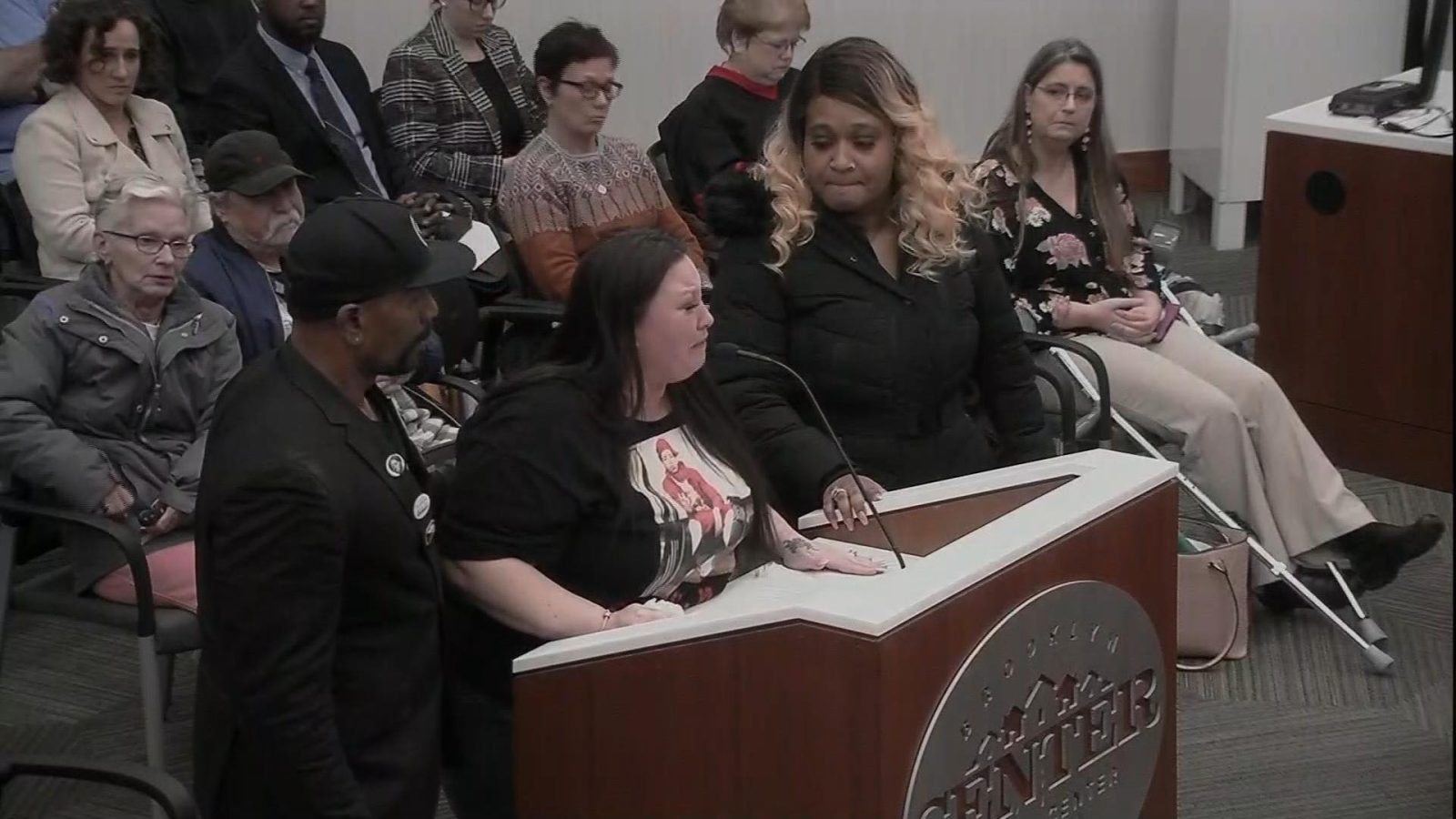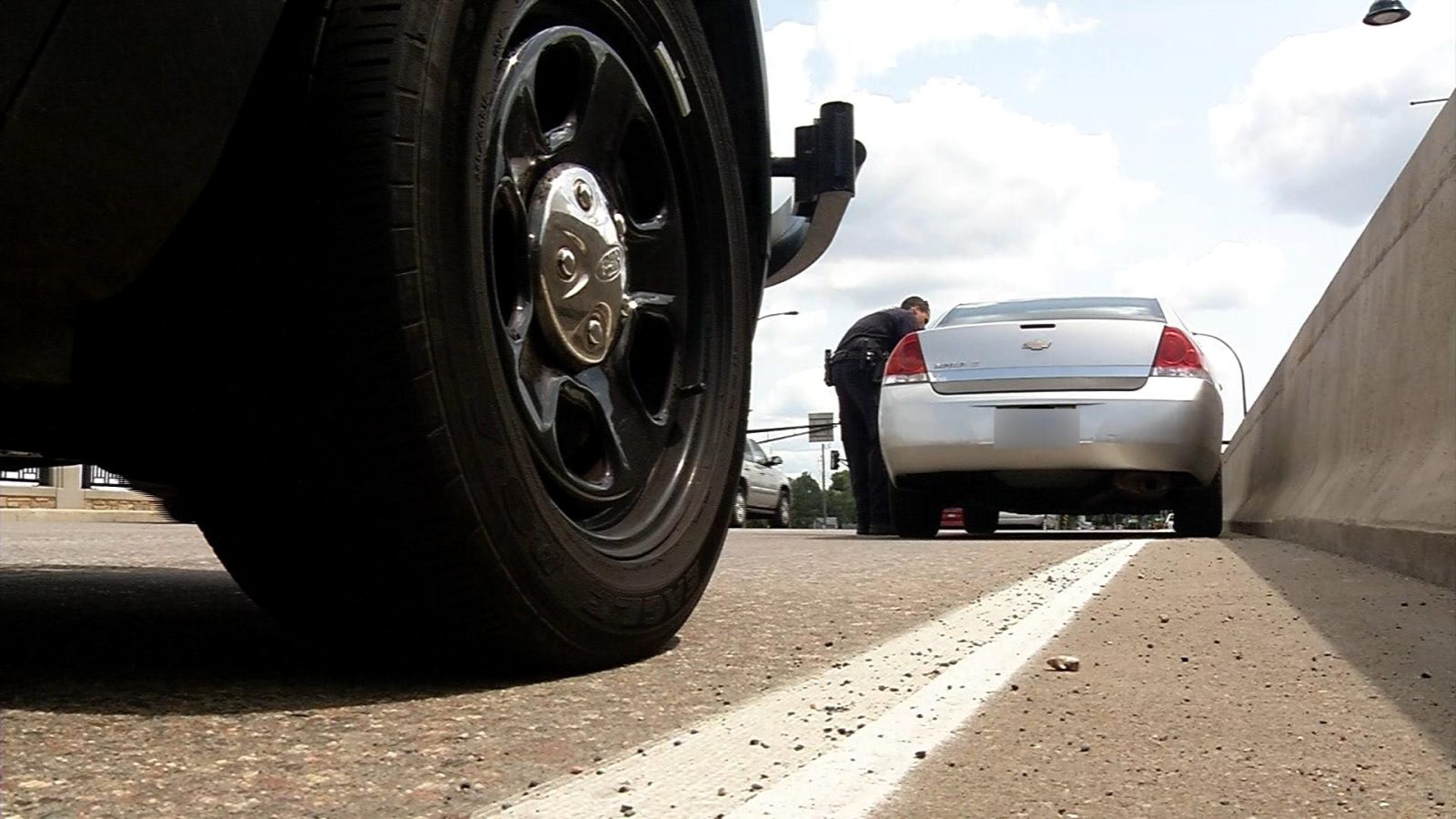Brooklyn Center Votes Down Police Traffic Stop Changes
City Council Decision Comes More Than Two Years After Death of Daunte Wright
Protests erupted in Brooklyn Center City Hall on Monday night after the city council rejected a traffic stop reform proposal for the city’s police department.
The policy would have restricted Brooklyn Center police officers from making a traffic stop solely for minor offenses like hanging air freshener on the rear-view mirror.
The council voted 3-2 to reject the proposal.
Brooklyn Center City Council members Teneshia Kragness, Kris Lawrence-Anderson and Dan Jerzak voted against the proposal.
Meanwhile, Brooklyn Center Mayor April Graves and Council Member Marquita Butler supported it.
This comes more than two years after the fatal shooting of Daunte Wright by then-Brooklyn Center police officer Kim Potter.
“You guys are some sorry people, and more people are going to die because you guys didn’t do the right thing,” said a tearful Katie Wright, mother of Daunte Wright. “I have been fighting for three years. My son has been dead for two years and nine months and you guys say no to a policy that’s going to protect people?”
A separate provision related to consent searches was also rejected by the council.
Brooklyn Center Police Reform Work Since Daunte Wright’s Shooting
Shortly after the death of Wright, the Brooklyn Center City Council adopted a police reform resolution called the Daunte Wright and Kobe Dimock-Heisler Community Safety and Violence Prevention Act.
Dimock-Heisler, a 21-year-old who was on the autism spectrum, was shot and killed by Brooklyn Center police in 2019 during a domestic incident.
The resolution called for the development of an unarmed branch of the police department. This branch would respond to non-moving traffic violations and mental health calls-for-service.
The resolution also created a group called the Implementation Committee that would help oversee the project.
The committee has been working on policy recommendations for the council, including the traffic stop policy rejected by the council on Jan. 22.
Katie Wright, as well as Dimock-Heisler’s mother Amity Dimock have both served on the Implementation Committee.

Katie Wright, mother of Daunte Wright, speaks after the Brooklyn Center City Council rejected a traffic stop reform proposal on Jan. 22.
Brooklyn Center Policy Proposal Banned Some Low-Level Traffic Stops
If approved, the new police policy would have limited officers from making a traffic stop for any of the following seven offenses:
- Invalid or expired trailer or motor vehicle registration.
- No functioning license plate lamp.
- No operative muffler.
- Exceeding motor vehicle noise rules adopted by the Minnesota Pollution Control Agency.
- Objects suspended between the driver and the windshield.
- Improperly displayed registration sticker.
- Driving with one operative headlight or rear light.
A second proposed policy related to consent searches. That is, consent searches are conducted by law enforcement after obtaining consent from a person under investigation.
If the policy had been approved, the city would have created a system to allow for the tracking of consent search data. It also would have created a program to educate the community on consent searches and implement a “right to refuse” statement for the police department.

The Brooklyn Center City Council rejected a policy that would have restricted police officers from making traffic stops solely for issues like invalid vehicle registration or a hanging air freshener between the driver and windshield.
Protests Follow Rejection of Brooklyn Center Traffic Stop Reform Proposal
Graves and Butler both offered support for the proposal, and noted it was a compromise between several parties.
“I know that there will be some people in this room that feel these recommendations don’t go far enough,” Graves said. “And I know that there will be some people here that believe they go too far.”
Butler said she believes the council should have moved ahead with police reforms much earlier.
“I hope that this is just a starting block,” she said. “Two years ago, we were the leader. We were going to be a leader in this country to have some progressive policy and now we’ve fallen behind.”
Shortly after the council rejected the proposal, tensions began to boil over into demonstration.
“Shame on you, shame on you, and shame on you — I swear to God I hope your kids die,” Dimock said.
Meanwhile, a speaker on the council’s Zoom stream let loose a stream of profanities.
The council ended the meeting early as protest chants began in the hallway outside the council chambers.


